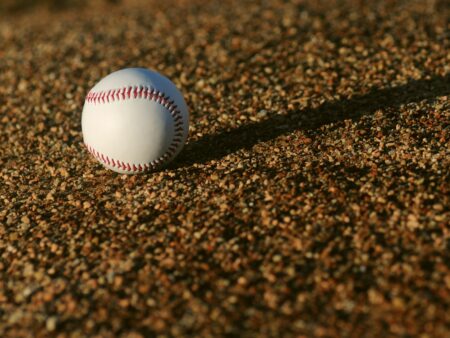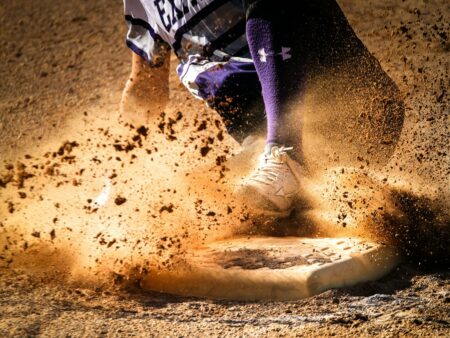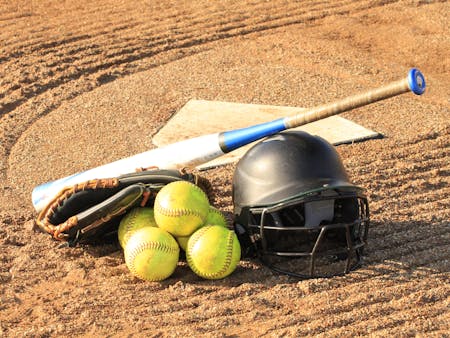Stepping up to the plate in the world of baseball requires more than just talent; it’s about dedication, strategy, and a deep love for the game. I’ve spent years analyzing what makes a baseball pro stand out from the rest, and I’m here to share those secrets with you.
From the crack of the bat to the rush of stealing a base, every moment on the diamond tells a story of hard work and perseverance. In this article, I’ll dive into the life of a baseball pro, exploring the rigorous training, mental toughness, and essential skills needed to hit it out of the park.
Whether you’re a budding player or a seasoned fan, you’ll find insights that bring you closer to the heart of the game. So, let’s lace up our cleats and get ready to understand what it truly means to play ball at a professional level.
The Life of a Baseball Pro
When you think about a professional baseball player, it’s easy to imagine the roar of the crowd and the glow of the stadium lights. But there’s so much more to the story. I’ve learned through firsthand accounts and my own observations that behind the scenes is where the real work happens.
Every day, a baseball pro’s life is a meticulously planned routine. From sunrise workouts to batting practice and defensive drills, the schedule of a professional player is almost militaristic in its structure. Proper nutrition and conditioning are just as integral. In fact, diet plans and exercise regimens are carefully crafted to maximize performance and minimize injuries.
Here’s a typical day for a pro player during the season:
- Morning workouts, often including weightlifting or cardio
- Batting practice to hone their hitting skills
- Field practice focusing on defensive responsibilities
- Review of game film to learn from previous games and scout opponents
- Rehabilitation and Recovery involving physical therapy, massages, or ice baths
- Team meetings to discuss strategies and game plans
This routine reflects a dedication that often starts in the minor leagues and continues relentlessly. Long bus rides and small towns are a rite of passage, teaching valuable lessons in resilience and grit. The relationships built with teammates, coaches, and fans are the backbone of a player’s support system, providing motivation and camaraderie through the grueling season.
Even during the off-season, rest isn’t really in a pro’s vocabulary. Training ramps up even more, with personalized programs to address weaknesses and enhance strengths. Engagement with fans through social media and community events is also a key part of a player’s life, fostering a sense of responsibility to the supporters and the sport itself.
For those who aspire to join the ranks of professional baseball, understanding the demands of a pro’s lifestyle is critical. It’s not just a game; it’s a way of life that requires an unyielding commitment that I’ve seen time and time again as essential to success.
Rigorous Training: A Key to Success
Professional baseball isn’t just about talent; it’s about fine-tuning that talent through rigorous training. I’ve seen firsthand how pros spend countless hours perfecting their craft. One key element they focus on is strength and conditioning. Building muscle, improving agility, and enhancing stamina are non-negotiable for any athlete aiming for the big leagues.
Typically, a pro’s training regimen includes a mix of:
- Cardiovascular exercises
- Weightlifting
- Plyometric drills
- Reflex and speed training
- Position-specific skill work
The off-season is particularly crucial for making significant gains in physical capabilities. Professionals often engage with personal trainers and follow a customized workout plan tailored to their individual needs.
Diet and nutrition also play a pivotal role. Understanding macronutrient balance, proper hydration, and meal timing ensures they’re fueling their bodies for optimal performance. The intake of proteins, carbs, and fats is closely monitored to keep energy levels high and recovery times low.
Balance and recovery are just as important as the workouts themselves. Days are strategically planned. Ample time is allotted for rest and recovery techniques, which may include:
- Ice baths or cryotherapy
- Massage therapy
- Stretching routines
- Adequate sleep
Skill development is where the magic happens. Hours upon hours are dedicated to batting cages and fielding grounders. Hitting isn’t just about power; it’s about reading pitchers and understanding game scenarios. Fielding isn’t just catching—it’s about reaction time, footwork, and situational awareness. These skills are honed through repetitive practice, video analysis of performance, and constant feedback from coaches.
Mental strength is built through this same relentless repetition. Visualization, meditation, and psychological exercises help in developing a mindset that can handle the pressure of a full stadium or a critical game moment. Staying mentally tough translates to resilience on the field, and I’ve learned that this aspect is as critical as physical prowess.
Developing Mental Toughness
In the realms of professional baseball, mental toughness is as vital as physical prowess. It’s about resilience, the ability to bounce back after a bad game or a string of poor performances. I’ve seen many athletes with exceptional talent fall short because they couldn’t handle the psychological pressure that comes with the game. To succeed at the professional level, developing a strong mental game is non-negotiable.
Strategies to Bolster Psychological Resilience
To hone mental toughness, players employ various strategies:
- Visualization Techniques: Before stepping onto the field, I practice visualizing successful at-bats and defensive plays. This mental rehearsal primes the mind for peak performance.
- Routine and Ritual: I follow strict pre-game rituals that foster a sense of readiness and control. Whether it’s a specific warm-up or a particular song, these routines combat anxiety and increase focus.
- Goal-Setting: Breaking down my career objectives into manageable milestones helps steer my drive and motivation. Achieving smaller goals en route to larger ones builds confidence and maintains my psychological momentum.
The Impact of Positive Mental Attitude
A positive mental attitude plays a critical role in facing the challenges of professional baseball. When negativity creeps in, I counter it with positive affirmations and remind myself of past successes. This approach ensures that my mind remains my ally, not my enemy, during high-pressure situations.
The Role of Mental Health Professionals
Increasingly, teams are recognizing the importance of mental health professionals in player development. Sports psychologists provide tailored support to players, focusing on coping mechanisms for stress management and mental resilience. I’ve found that routine sessions with a sports psychologist have sharpened my mental skills, contributing to my on-field performance.
While physical skills can be measured and quantified, mental toughness is more elusive, yet it’s a game-changer. It’s the steel in the athlete’s soul that separates the great from the good. As I continue to navigate my professional baseball journey, strengthening my mental fortitude is always a priority. It’s what enables players to thrive under pressure and emerge victorious in the face of adversity.
Essential Skills for a Baseball Pro
As I delve deeper into what makes a professional baseball player stand out, it’s clear that core skills and advanced abilities play a pivotal role. Mastery of these skills separates the weekend amateurs from the seasoned pros.
Firstly, batting expertise is non-negotiable. Understanding the mechanics of a powerful and accurate swing involves split-second decisions that can make or break the game. I’ve seen players with natural talent, but even they don’t rest on their laurels; they’re always refining their approach at the plate.
- Hand-eye coordination
- Timing
- Swing mechanics
Fielding proficiency is just as crucial as batting. A baseball pro must anticipate the ball’s trajectory, react with lightning-quick reflexes, and execute plays with precision. Whether you’re an infielder snagging ground balls or an outfielder chasing down fly balls, your glove work could be the difference between an out and an opponent scoring a run.
- Quick reflexes
- Accurate throwing
- Anticipatory skills
Another essential skill is pitching prowess. For those on the mound, it’s about more than just speed; it’s about placing the ball where the batter can’t hit it. Mastering a range of pitches – fastballs, curveballs, sliders – and knowing when to use them is something I’ve noticed top pitchers do with a strategist’s mind.
- Ball control
- Strategic pitch selection
- Stamina for innings
Lastly, the mental aspect of the game is something that can’t be underestimated. The ability to stay focused, make smart decisions under pressure, and maintain composure are what I’ve observed in players who consistently perform at their peak. These mental skills are just as important as physical prowess – possibly even more so.
- Focus during long games
- Decision-making under pressure
- Composure in high-stakes situations
In developing these skills, players often embark on a journey that includes rigorous practice, continuous learning, and mentorship from experienced coaches and players. It’s a journey of never-ending improvement, pushing past limits, and striving for that next level of performance.
Playing Ball at a Professional Level
As someone who’s spent years entrenched in the baseball scene, I can attest that making it in professional baseball isn’t just about what you do on the field—it’s a 24/7 commitment. For those aiming to reach MLB status, it’s essential to have a grasp of the lifestyle and dedication required. Essentially, the leap from amateur to professional isn’t just a step—it’s a giant, disciplined leap that only a select few can manage.
One key aspect is understanding the increased competition level. The talent pool is deeper, and every player is battling for a spot on the roster. I’ve witnessed firsthand how this competition pushes players to enhance their physical capabilities and perfect the art of playing baseball at a high speed. The velocity of pitches, the quickness of base runners, and the speed of the game itself are all augmented. Players must adapt accordingly or risk being left behind.
The lifestyle of a professional baseball player is also demanding. Travel schedules are grueling, and time away from home becomes the norm rather than the exception. On top of this, players need to engage in media relations, personal branding, and community engagement, which all require a proficient public persona. These responsibilities can weigh heavily but are integral to a successful professional career.
Furthermore, those looking to excel at this level must be open to consistent learning. Feedback from coaches, analysts, and even other players is crucial in refining an athlete’s skill set. Adaptation and flexibility are not just beneficial—they’re essential. New strategies, techniques, and technologies are always emerging, and staying updated is a non-negotiable aspect of professional play.
To shine in the pro leagues, it’s also about leveraging one’s strengths while diligently working on weaknesses. Some players may be naturally gifted hitters or fielders, but in professional baseball, a holistic approach to one’s skill set is vital for sustained success. Sure, I’ve always had a keen eye for picking out talent, but what separates the good from the great often boils down to their relentless pursuit of improvement in all aspects of the game.
Conclusion
Stepping up to the plate as a baseball pro isn’t just about talent; it’s about dedication and the relentless pursuit of excellence. I’ve seen firsthand how a blend of physical prowess, mental toughness, and strategic acumen can set apart the good from the great. It’s clear that success in this sport doesn’t come easy. It’s earned through sweat, strategy, and a commitment to continuous improvement. Whether you’re aiming for the major leagues or just looking to up your game, remember that every swing, pitch, and play counts. Keep honing those skills, listen to your coaches, and always stay hungry for that next home run. Because in the world of professional baseball, it’s not just about playing the game—it’s about living it.


